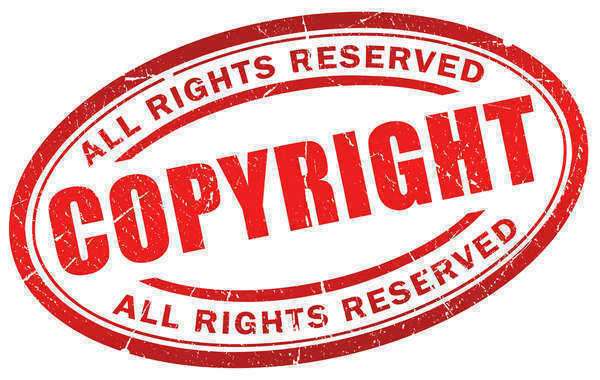This article is written by Rutuja Prashant, pursuing an Introductory Course: Legal Writing For Blogging, Paid Internships, Knowledge Management, Research And Editing Jobs from Lawsikho.com.
Table of Contents
Introduction
Copyright (or the right of the author) is a legal term used to define the rights that authors and creators have over their original works such as in literature and art. Copyright works vary from books, music, paintings, sculptures, and films to programs for computers, databases, advertising, charts, and technical drawings. Many scholarly journals require that authors, as a condition of publication, pass on copyright ownership to the publisher. Authors are asked to sign agreements after the approval of their paper. You will have to change the perceptions of what can be negotiated on the basis of the sort of publishing agreement you received. A publisher seeking a transfer of copyright is less likely to allow an author to maintain the copyright and give a restricted license to the publisher. It might be useful to ask those who have partnered with your publisher about their experiences while setting your goals. This is especially true if they have attempted to discuss their compromise, successfully or not. A license agreement is the most prevalent alternative to a copyright transfer agreement. A license (which is issued as part of the overall author agreement) provides permission to the publisher to exercise some author-owned rights but does not pass the copyright to the publisher the author retains ownership. A license thus preserves the right of an author to use his or her own article in a number of ways without the publisher having to request permission.
Copyright transfer arrangements
In general, Copyright transfer arrangements have particular sections:
– Transfer of the copyright + any rights granted back to the author – Representations/warranties and reimbursement
– Special terms, for example, royalty or other commitments
– Dissemination of authorial conflicts of interest, etc.
– General provisions and a block of signatures.
Regardless of whether a publisher is a commercial or non-profit entity, legal concerns such as copyright, contracts and permits, and piracy and compliance are central to the business. It is important to properly manage rights in order to sustain this business, including sometimes by enforcing rights when there is unauthorized harmful usage.
The time for the Copyright Transfer Agreement to be signed is the time when a signature is necessary for the transfer. At the time of the manuscript submission, some publishers need the agreement. Request that you wait until you have approved the text. If you have to sign upon request, in the event of the manuscript being accepted, be sure to read the transfer agreement and discuss the terms. Some journals have an online submission process that allows you to acknowledge the requirements of the publisher without allowing you the opportunity to discuss or provide an addendum from an author. If this is the case, copy the agreement and save it, update it with the rights you want and instead submit your transfer of copyright by email.
In Section 18 of the Copyright Act, the legislation also specifies that owners of future works will be entitled to make an assignment of their copyright. However, the court made it clear in the final bankruptcy law amendment of 2012 that gifting an inheritance by a poor or abused individual does not qualify for the transfer of assets under the deliberate transfer clause. Modes of manipulation of the system continually change because of advances in science. Today there are only VCRs, video cassette recorders and CD players. First, there were cassette players and CD players and now there are MP3 players and iPods. The progression of media is equivalent to the evolution of biological life. As is with other similar innovations, we cannot predict the technical advances that this ruling protects as a hypothetical scenario and thus, the definition of the security that is provided today can only include certain modes of exploitation that are actually available today.
Things that are negotiable
Publishers need you to exclusively pass your copyright to them and they can in exchange give you some restricted rights back to you. Any basic rights that you should consider while negotiating when copyright is transferred:
– Electronic distribution for educational purposes and other academic purposes.
– The reuse of text, if necessary, as a dissertation or thesis.
– The reuse of charts, diagrams, images, and statistics.
– The right to deposit into the archive of your institution (Scholars Mine), PubMed Central, and other disciplines.
Relevant repositories in a version that mirrors the accepted manuscript that has been peer-reviewed. Publishers of open access are working in the opposite direction. You maintain the copyright and, under a Creative Commons license, pass some rights to the publisher.
Significant factors that should be taken into account and when negotiating intellectual property rights
- Make sure that the seller that is selling the copyright to the deal is actually the owner of the copyright, this is, making sure that the buyer has the right to sell the intellectual property server created speech format used in the deal.
- Make sure that you are checking the validity of intellectual property rights, taking into account that trademarks are renewable every 10 years, and other forms of industrial property rights are not renewable, such as patents, which are protected for 20 years, utility models, and industrial designs, which are protected for 10 years, 18 for vegetable whether they are vineries and forest trees, fruits and ornamentals, and 15 for other types of vegetative. If the security period has expired, the exclusive rights to the intellectual property would go into the public domain, thus, the owner has no exclusive right to use the intellectual property.
- Determine if there is any seizure of intellectual property. If so, investigate if there is any mortgage on all intellectual property or anything similar.
- It is advised to examine whether the transfer of copyrights would include all the ownership rights such as the right to convert to the property of the owner, the right to contact with the public, the right to sale to the public, and the right to import copies, and therefore they will not be included in the transfer rights.
- For manufacturers and distributors of e-cigarettes, it is advised to examine that you have a license for the brand, and the length of the license and what the responsibilities are that must be applied together, and what rights of use and commercialization of the brand you are being in possession of as opposed to the others.
- Consult with the transferor or licensor of the intellectual property right on any intellectual property rights that may influence the use of the intellectual property right being negotiated, for example, whether there are any copyrights for any manuals, instructions, or pamphlets.
- The customer is assured that they are buying or selling items that are legal and an accurate portrayal of what is being bought.
It is necessary to be aware of the costs of retaining the intellectual property rights, such as patent maintenance fees, renovation of the trademarks, and custody and supervision of the trademarks.
Strategies to be kept in mind while entering into negotiations
There can be a lot of innovative strategies used to have a successful negotiation; however, few of them have been briefly discussed in this segment.
- Re-assignment – A provision prohibiting the assignee from re-assigning the copyrights should be inserted to stop him from re-transferring the work, or using it as collateral for loans before it has made full payment of the money due under the agreement if the owner wants to sell the copyright outright. In almost all cases, each party has something that they must do for the other party.
- Or consider the case of “consideration” in this particular option. This obligation/duty may be to provide a service, to pass ownership of something, or just to pay money. The signer should enter on the bottom of the contract (“Understood”. “Please send $200 to the wrong address.”) If the piece of creative work has a scope of remaining in the market for a certain amount of time, it is a good idea to request a one-time price justifiable for the piece of development or opt for a piece-of-the-cake payment received based on the product’s resale and benefit. This way, the businesses have enough funding to grow larger. Some of these independent artists do not know the low amount of money they make by selling all their copyrights to the bigger corporations.
Conclusion
It can also be safely concluded from various copyright assignment issues is that when assigning your rights, it is very critical that you specifically lay down the particular right which you are assigning in order to minimize the chances of misunderstanding being caused. While the amendment of 2012 did improve the role of writers of works, it also increased the power of the state as a third party for the purpose of the assignment. It is only natural for people to have a desire to become effective in life. And it is right to encourage them to have access to the tools they need to succeed.
References
Students of Lawsikho courses regularly produce writing assignments and work on practical exercises as a part of their coursework and develop themselves in real-life practical skills.
LawSikho has created a telegram group for exchanging legal knowledge, referrals, and various opportunities. You can click on this link and join:
 Serato DJ Crack 2025Serato DJ PRO Crack
Serato DJ Crack 2025Serato DJ PRO Crack











 Allow notifications
Allow notifications


